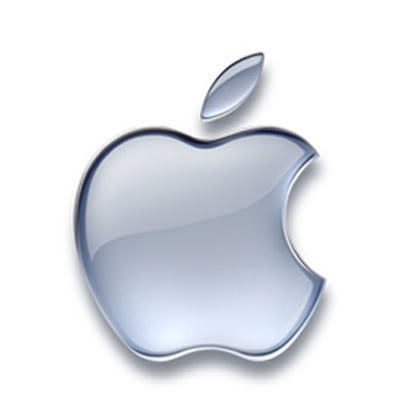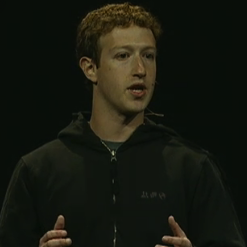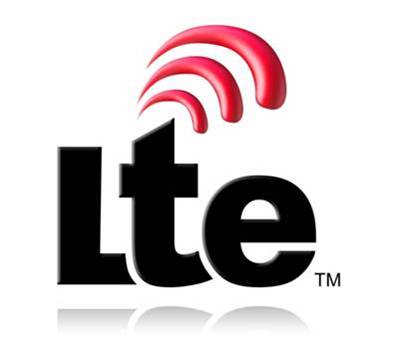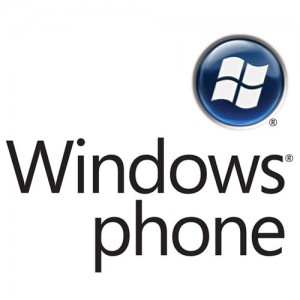
LightSquared announces hardware partners for upcoming LTE network
North America's 4G footprint is beginning to take shape. MetroPCS now has two LTE networks open in Las Vegas and in the Dallas/Ft. Worth metroplex, yesterday Verizon Wireless announced that it will have LTE in 38 U.S. cities and 60 commercial airports by the end of 2010. Also this week, AT&T announced its first LTE-capable device, and Canadian carrier Rogers announced its first 700MHz LTE trial in Ottawa, Ontario.
LightSquared, the still-in-development wholesale LTE network built in the 1-2GHz L-band, announced several important partnerships today for equipment, chips, and consumer devices as well.

Retro style, modern features: Vinyl ripping with the Crosley Revolution
When the Walkman portable cassette player revolution had firmly gripped the world in the early 80's, Audio-Technica produced a unique product that capitalized on the portability trends, but applied it to vinyl records. It created tiny, clamshell-style record players that stripped away the big turntable in favor of one with a 3.5" diameter that could still play 12" LPs.
The most notable versions of this turntable were the AT-727 "Sound Burger," and the AT-770 "Mister Disc." And though these devices weren't commercial breakthroughs in their time, they now fetch significant sums on eBay, and have enjoyed a massive resurgence in consumer interest.

The First Google TV device, Logitech Revue, gets unveiled, goes up for sale
As expected, Logitech today officially launched the first piece of Google TV hardware, the Logitech Revue set-top box. While a lot was already known about the product, today's announcements filled in all the gaps, and revealed some additional surprise features that were heretofore unknown.
In June 2010, Logitech first presented the Revue, showing off the box, its integration with the home theater as a Harmony-powered IR blaster, and its support for Android applications. But this didn't really tell consumers what kind of device it would be, such as an over-the-top streamer like Roku or Apple TV, or home media manager like WD TV or the Boxee Box. Later, it was shown off controlling a DVR and offering Google-powered searches, but still it looked like a device without an absolutely clear identity.

Motorola sues Apple, claiming infringement of 18 patents
Motorola subsidiary Motorola Mobility sued Apple on Wednesday, claiming the Cupertino company infringed on 18 patents it holds covering a range of wireless technologies. The suit was filed in two US District courts: one in the Northern District of Illinois and the other in the Southern District of Florida.
Among the technologies covered are those related to GPRS and 3G, as well as 802.11 wireless Internet. Other functions that the patents cover include technologies which have become staples of the iPhone including multi-device synchronization, proximity sensors, and location based services.

In the name of privacy, Facebook revamps groups, dashboard, data portability
As more people put more sensitive information on Facebook, it's becoming increasingly important to give users better ways to control who sees that data and how it's used. At a press conference in Palo Alto today, Mark Zuckerberg and company unveiled three big enhancements to the way users interact with their Facebook accounts, with the underlying theme of privacy.
First, users can now download everything they've ever posted on Facebook, including all correspondences between friends, all photos and video they've been tagged in, and their friends list as a single zipped file.

Cisco unveils Google chat-compatible video conferencing product for HDTVs
Network hardware company Cisco today introduced umi telepresence, its first HD video conferencing product designed for consumer televisions.
Consumers now have access to the TelePresence technology humorously product-placed on NBC's 30 Rock last year; Cisco umi includes an HD camera and a broadband-connected console that users hook up to their television. Once the unit is connected, they can then make video calls to other umi users or Google video chat users, record video postcards for Facebook and YouTube, or manage contact lists and profiles via remote control. When users receive a video call or message when they're away from their TV, they can receive text message alerts that a video message awaits them. Video messages can be checked on remote PCs as well as on the console.

Trouble sorting out Microsoft's project codenames? Check this out
With such a large catalog of software and solutions, it's often a task remembering the names of Microsoft's products, especially when they are prone to changing as new versions come out. Unreleased products and betas are a whole other affair altogether.
Fortunately, Mary Jo Foley, Microsoft expert over at ZDNet and author of Microsoft 2.0: How Microsoft Plans to Stay Relevant in the Post-Gates Era, has released the latest Whitepaper that sorts out all of Microsoft's currently known project codenames called All About Microsoft: CodeTracker.

Motorola unleashes salvo of new Android phones
At CTIA Enterprise and Applications 2010 in San Francisco today, mobile phone maker and major Android supporter Motorola unveiled six new Android smartphones that will be available at different points later this year. In typical Motorola fashion, each device offers a unique selling point to make it stand out in the Android marketplace.
Flipside
This QWERTY slider features a unique large trackpad on the front panel beside the 3.1" touchscreen. It runs a 720MHz processor and Android 2.1, and will be available for $99 on AT&T.

Analyst says iPad is fastest adopted consumer electronic device ever
Derided by some at its launch as a device with no market, Apple's iPad has now proven to be one of the most successful consumer electronic device launches ever, according to Bernstein Research retail analyst Colin McGranahan. He expects the device to have a sell through rate to be about 4.5 million units per quarter.
This is far faster than the iPhone, which sold one million units in its initial launch quarter, and far ahead of the 350,000 DVD players sold in its first year, CNBC reported Tuesday. Repeating the statements of some analysts that the iPad would not be a runaway hit, he mused "by any account, the iPad is a runaway success of unprecedented proportion."

AT&T announces first 4G-capable laptop devices
Though AT&T hasn't launched its next generation HSPA+ or LTE networks yet, the carrier Tuesday introduced the first LaptopConnect devices that will support the technologies.
The first LTE-capable device will be the USBConnect Adrenaline from LG, and the first device supporting HSPA+ will be the USBConnect Shockwave from Sierra Wireless.

Android leads RIM, iPhone in US sales, Nielsen says
Android grabbed the top spot in market share among smart phones sold in the past six months ending in August, data from Nielsen released on Tuesday showed. The platform made up 32 percent of all sales in the month, outpacing Apple, who made up 26 percent of sales, and RIM, which had 25 percent.
RIM had held a sizable lead in the survey until June, staying in a range of 31 to 37 percent of the market since January. However, Android had either increased or maintained its share in every month, unlike Apple, who generally fell during the year. Apple's only saving grace was the release of the iPhone 4, it appears.

Will you buy Windows Phone 7?
It's a question I've asked before, but it comes with new urgency. Microsoft will officially launch Windows Phone 7 in six days, on October 11th, with main event in New York City. The analysts give Windows Phone 7 little to no hope of catching rivals. Gartner predicts Microsoft's mobile software will fall below "other" by 2014. But analysts peering into crystal balls, and often seeing fantasy futures, won't be considering a Windows Phone 7 purchase. You will.
So I simply ask: Will you buy a Windows Phone 7 smartphone? But a yes or no answer isn't good enough. I want reasons. Particularly for potential buyers, what are three reasons (more if you like) why you will buy into the Windows Phone 7 cosmos? For regular Betanews readers who are Microsoft fans, this is a great opportunity to rally for your company. But be smart, by being specific. Share what you hope to gain from a Windows Phone 7 smartphone rather than generally congratulate Microsoft or assert that somehow, someway the WP7 stormtroopers will retake the palace. Please answer in comments -- or, better, by email: joewilcox at gmail dot com. I'll compile the best responses into a separate post.

Skype releases Android app to the public: the pros and the cons
Tuesday, popular instant messaging and VoIP chat client Skype officially launched its Skype application for devices running Android 2.1 and up. While Skype is one of the most popular VoIP clients, bringing it to the Android platform has been quite problematic. With this release, we see those problems have persisted.
What it does

Hitachi-LG debuts second generation 'hybrid' optical drives
In the thin-and-light "ultraportable" class of notebooks, one of the first features to be removed as a space-saving measure is the optical drive. But these space limitations can be worked around with consolidated solutions like the so-called "Hybrid Drive" which combines an optical disk drive and SSD in a single drive enclosure.
Today, HLDS (the joint venture between Hitachi and LG) unveiled its second generation of hybrid drive, designed for use in smaller form factor devices such as ultraportable notebooks. It's an evolution of the HyDrive concept that HLDS showed off earlier this year, but with today's announcement, Micron is the supplier of the NAND flash components. The first run of these drives will come with 16GB, 32GB and 64GB of memory.

Evan Williams steps down as Twitter CEO, COO Costolo gets nod
Responding to the increasing size of Twitter, and a desire to go back to his roots in development, Evan Williams said Monday that he would be stepping down as Twitter's CEO, handing the company over to current COO Dick Costolo. Williams had served in the position since 2008.
The change would take effect immediately, Williams wrote in a blog post Monday. "Starting today, I'll be completely focused on product strategy," he said. "Building things is my passion, and I've never been more excited or optimistic about what we have to build."